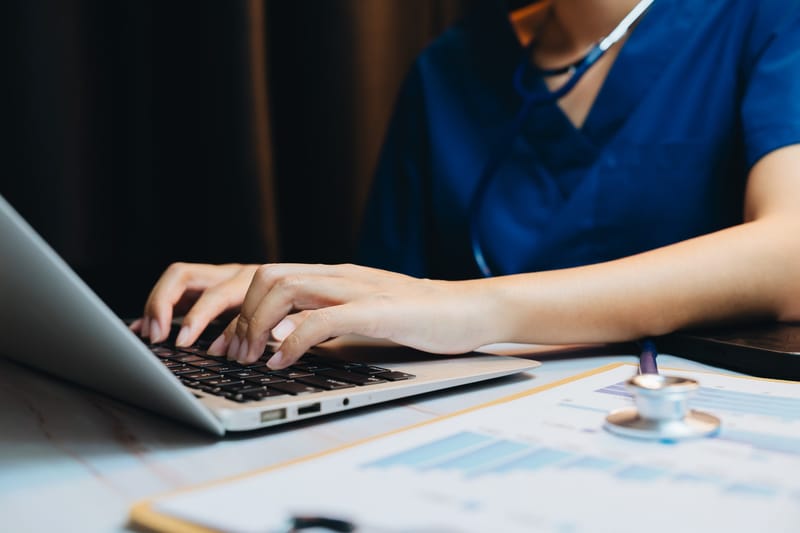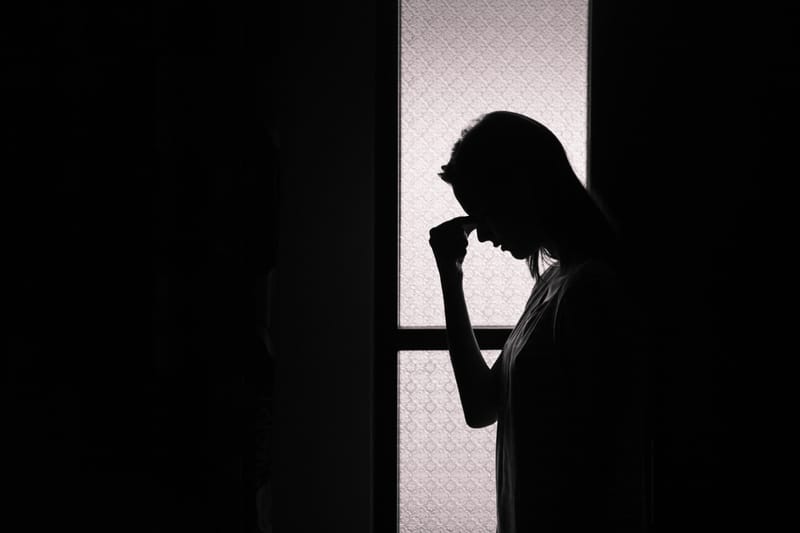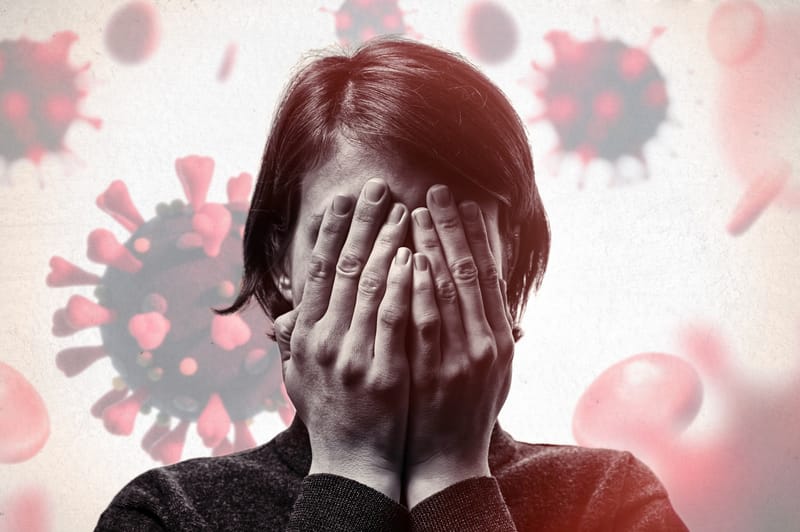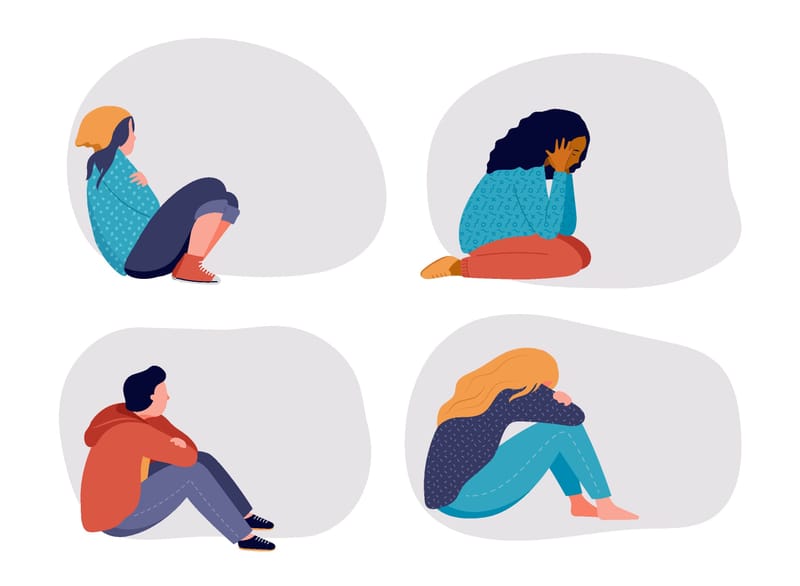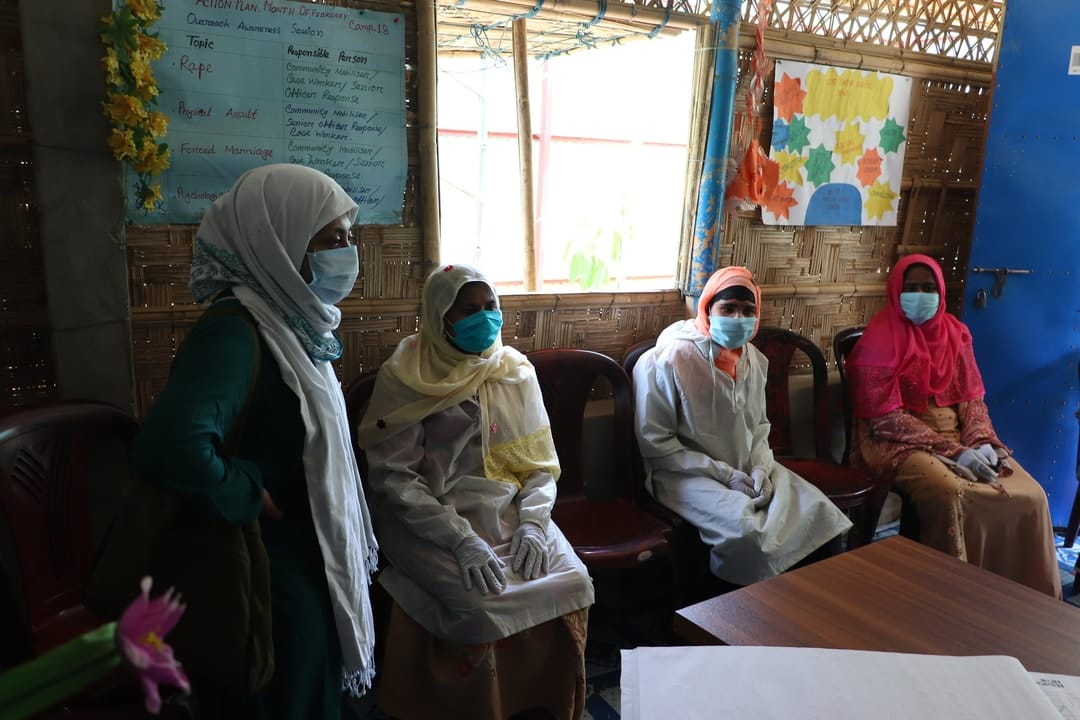
In 2008, referring to the Eastern Democratic Republic of the Congo, UN Force Commander Major General Patrick Cammaert stated: “It is more dangerous to be a woman than a soldier in armed conflict right now.”
Today, the global COVID-19 pandemic has been likened to “war” by many national leaders, including Australia’s Prime Minister, Scott Morrison, and the US President, Donald Trump.
As during war, states have assumed emergency powers, and many are deploying their militaries to enforce quarantines, curfews, and other responses. And, as with war, this pandemic is likely to be more dangerous for a woman seeking peace and security than it is for a man, not least of all because the home is the least safe place for women in every country in the world, but especially in fragile and conflict-affected countries.
Monash Gender, Peace and Security Centre (GPS) has just completed the first comprehensive review of the impacts of COVID-19 on women, peace and security agencies (WPS) and their workers across the Indo-Pacific.
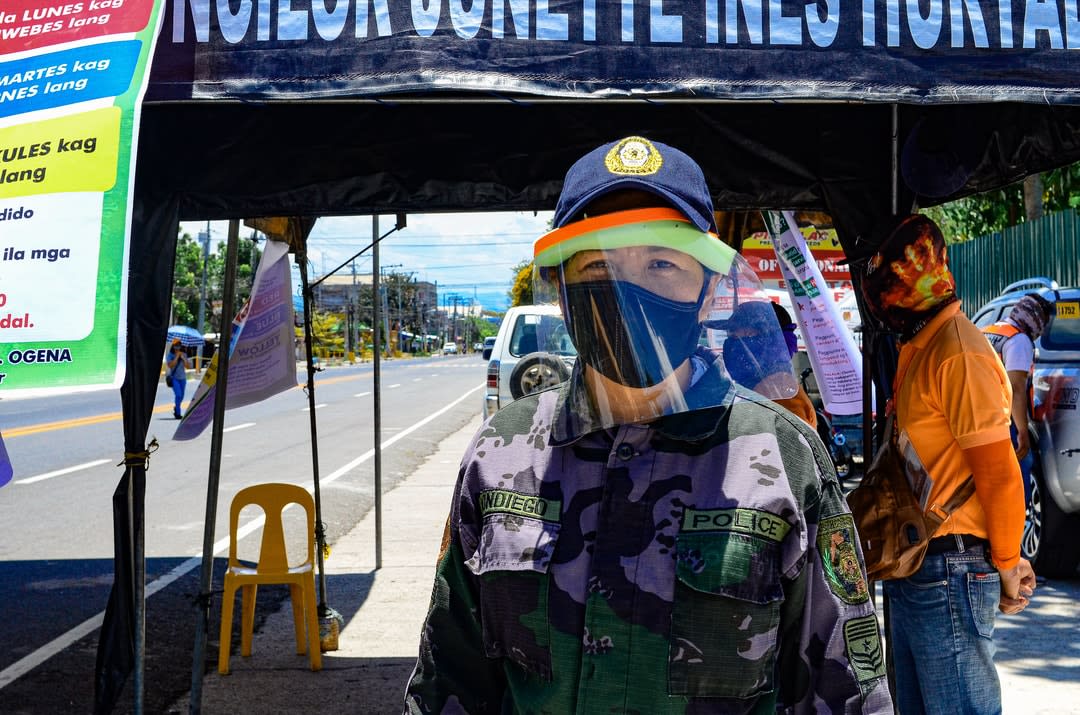
We wanted to map the early impacts of the pandemic on those working with vulnerable communities, from 24 April to the 11 May, so that policymakers and donors can be better informed as they consider their international strategies to contain COVID-19 and address its human security effects.
Read more: Coronavirus crisis, and the urgent need to revisit repatriation of foreign fighters’ children
The survey responses gave voice to those working as human rights defenders (both women and men) of vulnerable women and their dependents, in particular when they were already impacted by prolonged conflict or extreme poverty.
The Monash GPS survey covered 29 countries, was translated into 13 languages, and received 139 responses. The WPS organisations included those that:
- advocate and deliver services related to human rights
- promote equality
- deliver sexual and reproductive health services
- support education and economic development
- oppose gender-based violence and seek to uphold law and justice.
Eighty-eight per cent stated that COVID-19 had already impacted the scope and focus of women, peace, and security work.
More than two thirds (68 per cent) of respondents have changed their program focus as a result of COVID-19. However, the vast majority have not received any new funding to support this pivot. In fact, many have seen a reduction in overall funding.
While COVID-19 was seen as impacting on the sustainability of programs, the personal loss of income and job security was rated as the highest short and long-term concern for individual workers. Across all 29 countries surveyed, continuity of jobs and income was the main issue, followed by movement restriction, food security, and loss of health services, including reproductive health services.
Forty-five per cent of respondents found the impacts were compounded when their countries went into lockdown.
Fifty-six per cent said lockdowns had reduced or blocked their organisation’s access to services and to populations, making their human rights and gender-based violence protection work and advocacy even more difficult.
The effect on women in lockdown
The data also revealed that there were increasing threats to the safety and security of vulnerable women, and that their fears of income loss and safety were correlating with the growing numbers of days in lockdown.
In the Solomon Islands, for instance, despite there not being positive cases of COVID-19 registered as at 18 May, respondents reported the lockdown restrictions had caused income and job losses, social distress, displacement, and increased domestic violence. (Note that pre-pandemic violence was already reported at epidemic levels in the Solomons).
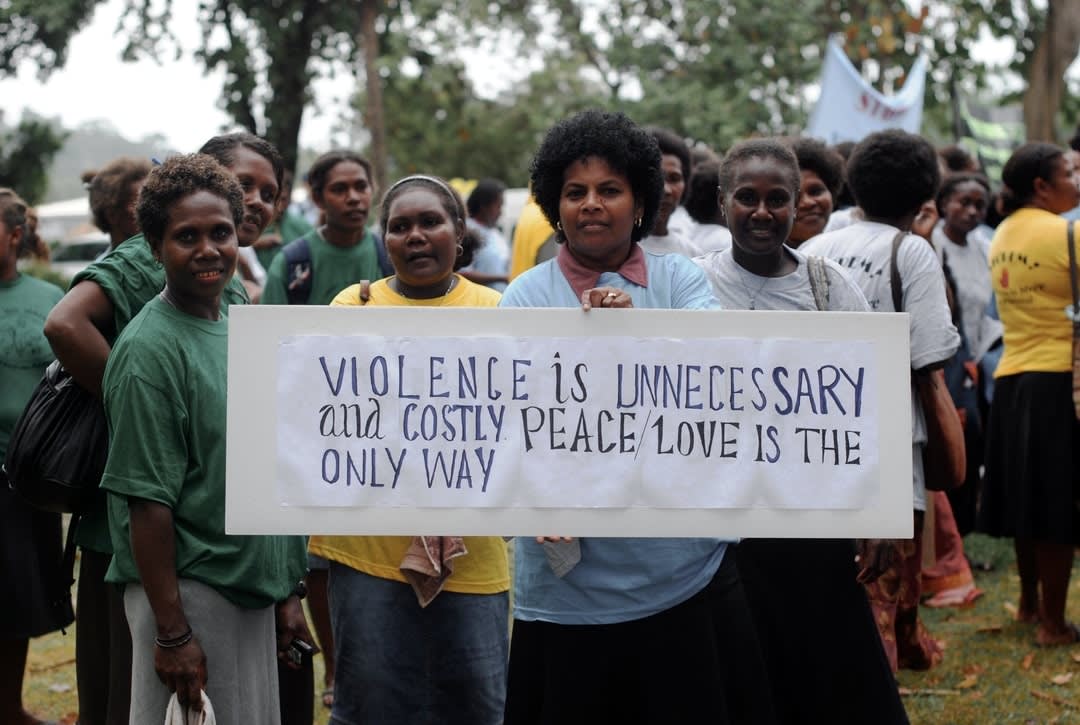
An Afghanistan respondent reported how she now focused her work from home on trying to raise donor funds to supply food parcels and income-earning mask sewing for women household heads widowed by the war.
In Sri Lanka, several women’s groups have mobilised to provide stranded workers and daily wage-earners with food and other provisions.
In Indonesia, local volunteers are also organising to provide face masks, hand sanitiser and food. None of these activities are funded.
The International Labour Organisation has found that women are often in high-risk sectors and self-employed, or owners of micro or small-sized enterprises. This is also true of many local WPS organisations, which are often small in size. The Association for Women in International Development found that 80 per cent of local women’s rights organisations are reliant on international and private donor funds (and concern was reported in the GPS survey about the continuity of such funds).
Respondents were also concerned about the difficulties of physical distancing in crowded settlements and slums, the lack of basic washing facilities during a call for heightened hygiene, denial of access to refugee camps or quarantine centres, coercion to use tracking apps, as well as the militarisation of some country’s responses.
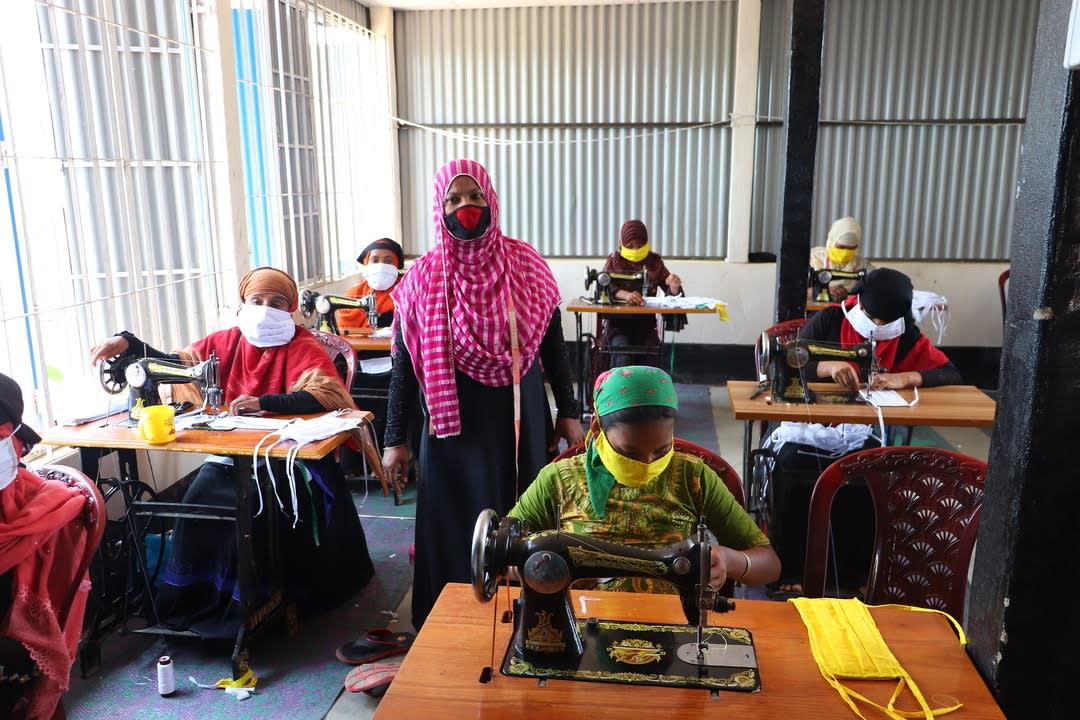
Organisations also expressed difficulties in meeting donor obligations, as well as the new demands from different target groups adversely impacted by COVID-19. Such concerns were then nested in the overall context of inadequate funding and less donor or government support.
When asked about trusted sources of information related to the pandemic, just 12 per cent of respondents referred to social media, with 32 per cent relying on the government, followed by international organisations such as the World Health Organisation (23 per cent ).
UN Women reported in 2020 that Bangladesh and Pakistan women are less likely than men to own a cell phone. This may help to account for the greater reliance on other sources.
In all societies, women and girls experience unequal gender norms (with the extent of this inequality influenced by additional intersectional factors such as ethnicity, sexual minority and socio-economic status).
Pandemics, like conflict, disproportionately affect women. Having said that, it's also important to note that women are not only or always victims in the context of conflict or a global pandemic.
This survey has shown that "women, peace and security" workers are contributing significantly to the delivery of services aimed at ameliorating COVID-19, and that they aim to support those who are, and will be, disproportionately impacted in situations of displacement, poverty and insecurity.
Pivot to focus on the pandemic
The Monash GPS survey showed that the vast majority of respondents had pivoted to focus on the pandemic and the new needs of their communities, despite not having any additional resources allocated, and that they continue to operate with other constraints that threaten both their pandemic work and their core programs.
The women, peace and security (WPS) agenda represents a crucial framework for responding to global crises and their differential impacts. Thus, we call on governments and international organisations to officially recognise the pandemic-related and core work of the WPS organisations, and to repurpose their donor funding in response to COVID-19 local priorities.
Funds should be targeted through local organisations wherever possible. Support could include cash grants and loans, training and upskilling to build their online remote working capacity, to support their monitoring and messaging, and the role of strengthened data collection and law enforcement at a time when the risks of human rights abuses are heightened, and the access to services, and to justice, are severely constrained, especially for women and girls.


